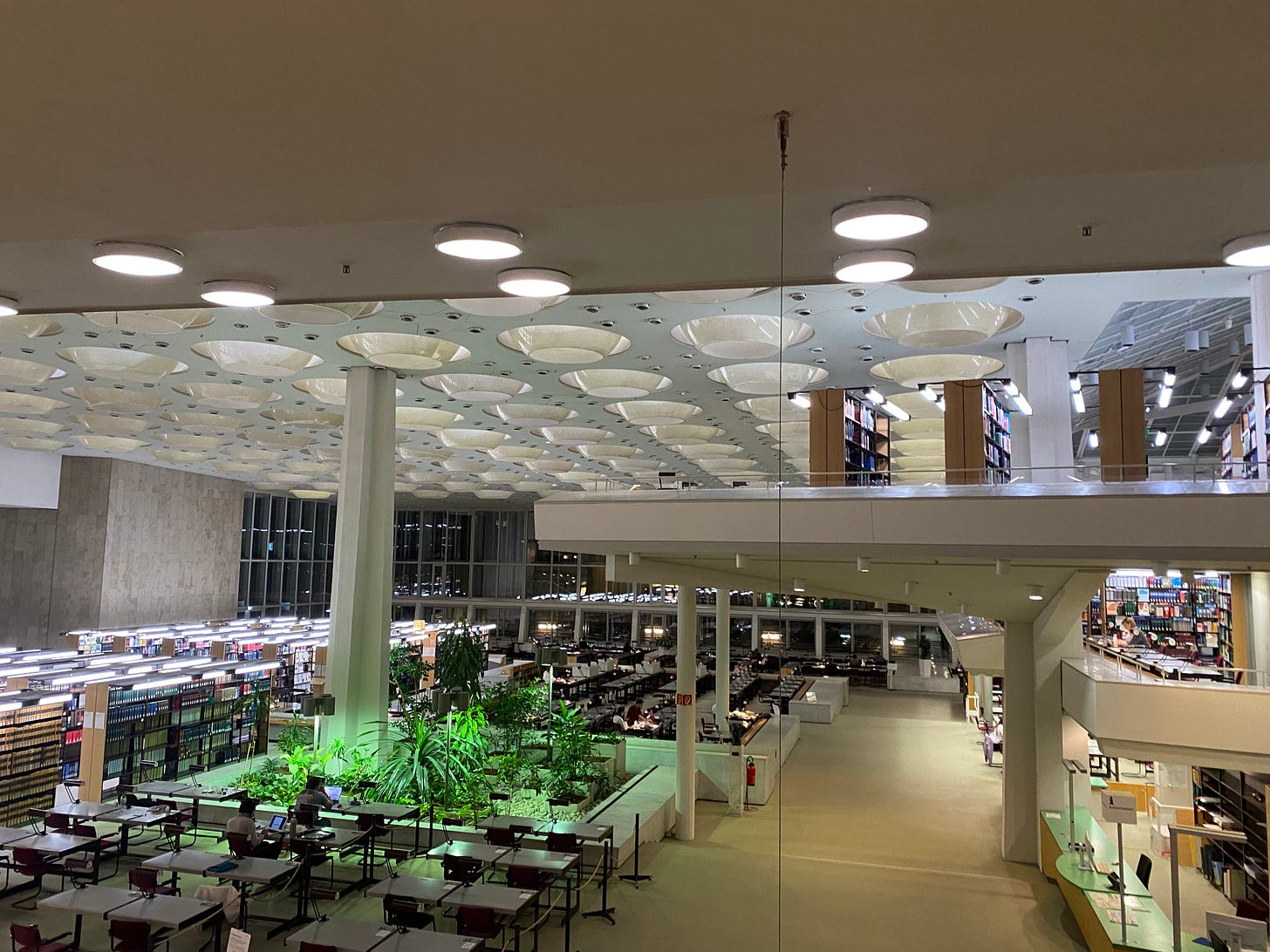Last autumn, when I went to live in Spain for four months on a semi-successful attempt to reassess my life and find myself, I listened obsessively to a Spotify playlist called “Dark Academia Jazz.” I am listening to it now again; I am sitting in the Brutalist-adjacent Staatsbibliothek zu Berlin as the sun sets wearing a black turtleneck. In short, that time of year has come.
The point is that, after a summer of searching for lightness, I am once again ready to seek out media that makes me sad. Since her death, I have been finding and watching old Maggie Smith films — yes, the camp brilliance of The Prime of Miss Jean Brodie, but also the gorgeous slowburn that is The Lonely Passion of Judith Hearne. I am finally reading Toni Morrison’s heart-wrenching and startling Beloved, after having pretended for years that I already have. And last week, I bought Garth Greenwell’s new novel Small Rain, devouring it in hungry chunks every night — even though I promised myself I wouldn’t.
Greenwell’s first two novels, What Belongs to You and Cleanness, are powerful autofiction-y portrayals of queer loneliness, pain as well as smoking hot sex, based around an American English teacher living in Sofia, Bulgaria, as Greenwell himself did for many years. No, they are not as bleak as A Little Life or On Earth We’re Briefly Gorgeous — and many critics focus on the optimistic ways he sometimes celebrates, among other things, the joys of anonymous sex — but there are still elements of the queer trauma porn we have become accustomed to in the twenty-first century to them. Before reading the new offering, all I knew about the plot of Small Rain was that it concerned a writer in hospital, so I expected even more tragedy. Perfect, I thought. It’s raining out and I’m feeling moody.
And sure, tragedy struck. Our narrator’s story of a random health problem that turns his life upside down set at the height of the COVID pandemic, is harrowing at times. The attention to detail of the minutiae of his medical procedures made me wince at times. But more than anything else, the book is a … love story? And a surprisingly schmaltzy, cutesy one. A million miles away from the stories of gay male loneliness that defined Greenwell’s career, and yet astonishingly movingly written. I found myself rooting for the narrator and his steady, safe-pair-of-hands partner who cares for him so deeply. The realistic nuances of their long-term relationship made me smile far more than Greenwell’s reflections on poetry or the nature of existence. The reality of their love felt just as real as the impossibility of lasting love had in his other works.
Earlier in the year, my boyfriend and I saw All of Us Strangers and argued afterwards about the portrayal of gay male loneliness. He saw it as a tired stereotype; I saw it as a representation of an admittedly overplayed but undeniably true aspect of, in particular, the gay male generation that came of age while anti-queer laws where still commonplace and during the tailend of the worst of the AIDS crisis (I’m talking largely about Europe and North America). Greenwell is, admittedly, a little younger than this generation, but it would be easy to pathologise his gay male narrators as victims of the same system. Why should they not, in 2024, be allowed some happiness?
All of this is to say — I went looking for darkness and found light. Vibe-y autumn be damned; long live brat summer. The book is gorgeous and it made me happy. That’s OK.




